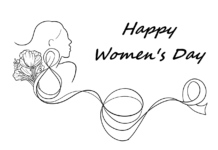Needless to say, not everyone has had the privilege of a supportive and loving mother. In many households, motherly love is conditional and selfish. Some mothers have hardened from their cruel experiences in the world. Contrarily, life may have softened them, and motherhood has taught them how to express their love more deeply and truly than any other experience they’ve had.
Motherly relationships are by far one of the most rewarding experiences a student goes through, though most of us who live on campus are away from our parents and distanced from our families. In honour of this, I’d like to reflect on motherhood, because I miss my mother everyday.
These are a few books that I’ve read that perfectly illustrate all realms of motherhood and mother-child relationships in an unsanitized and candid fashion.
“Please Look After Mom” by Shin Kyung-Sook
“Please Look After Mom” highlights the character of the mother, who is frequently treated as nothing more than the maternal figure in the family. Often, we don’t realize we are taking our mothers for granted before it is too late.
When the protagonist’s mother disappears, the whole family embarks on a desperate search to bring her home. Through this journey, the family discovers so much about her — they learn many of the secrets, passions and dreams she had kept locked away from her family, as well as the sacrifices she made in order to be a good mother. Her family only then realizes that the mother figure is more than just a mother, but a human being that harbours desires of her own.
“Why did we think of Mom as a mom from the very beginning? She didn’t have the opportunity to pursue her dreams, and all by herself, faced everything the era dealt her [alone]…Why did I never give a thought to Mom’s dreams?”
The daughter, who has slowly grown older without her mother, is realizing her grave mistake: she and her mother had become strangers, interacting less and less as she had gone through middle age. Looking through old photographs of her mother, the daughter makes a sudden realization:
“To you, Mom was always Mom. It never occurred to you that she had once taken her first step, or had once been three or 12 or 20 years old. Mom was Mom. She was born as Mom…it hadn’t dawned on you that she was a human being who harbored the exact same feeling[s] you had.”
This is one of the most important books I have ever read, and one of my all time favourites because of its underlying message — human beings tend to take the ones that love them for granted. We live in a state of miserable delirium, in which we allow ourselves to put off taking care of the ones we love and seek out our own selfish endeavours.
This novel is absolutely sobering and I recommend it to everyone.
“Teaching My Mother How To Give Birth” by Warsan Shire
“Teaching My Mother How To Give Birth” is a short poetry collection about strained mother-daughter relationships, specifically those of second-generation immigrants. Immigration puts a lot of stress on many relationships, and often parents do not stay together. Whether that is for better or worse, it can heavily impact the development of their children.
Shire’s collection explores multigenerational narratives of love, loss and the chaos and trauma of being stateless. When a mother doesn’t feel like home, it can be earth-shattering. Shire discusses her relationship with her mother, saying, “No one leaves home unless home is the mouth of a shark.” However, she does not feel any hatred toward her mother, reminiscing on her immigration and the trials and tribulations of her suffering.
This book gives us a sense of understanding and empathy, and tells us what it feels like not to belong. Home is more than a house or a family, and the root of a home stands a mother. Belonging runs deeper than blood or water.
“What To Do When I’m Gone” by Suzy Hopkins
“What To Do When I’m Gone” explores the grief of losing a mother, and of losing your best friend — the most important person in your life
One day in her early twenties, author and illustrator Suzy Hopkins realizes that her mother will be gone. This devastating discovery inspires her to reach out to her mother and ask her to write her a guide — a daily to-do list of how she should live from the first day her mother dies onward. This is an extremely heart-shattering book, as are all of the books in this list, so proceed with caution.
She writes, “The earth would continue to spin, and I’d be left in a world without her…Who would listen to me talk about my work for more than five minutes? Who would tell me everything? Who would forgive me for everything? How could I possibly navigate this world without the person who brought me into it?”
I believe the concept of having a day-by-day guide on how to carry onward after such a great loss is absolutely helpful. It can offer a feeling of warmth and safety. The mother writes in the book that the daughter should take it easy on herself, not blame herself if their last interaction was a fight, and offers words of comfort.
Hopkins’ book emphasizes the difference between a mother’s love and the love we receive from friends or other family members. A mother’s love will always feel different and run much deeper than any form of love, because it is, in its most ideal form, the most forgiving and unconditional love in the world































